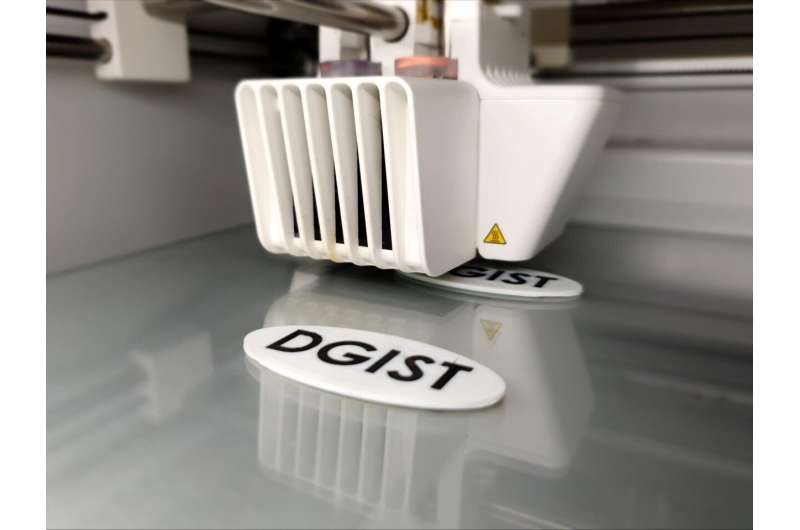
The treatment of many medical issues like abnormal gait and muscular disorders require an accurate sensing of applied pressure. In this regard, flexible pressure sensors that are simple, lightweight, and low-cost, have garnered considerable attention. These sensors are designed and manufactured through ‘additive manufacturing’, or what is more commonly called ‘3D printing’, using conductive polymer composites as their building blocks.
However, all 3D-printed pressure sensors developed so far are limited to sensing applied forces along a single direction only. This is hardly enough for real world applications, which involve situations where forces can be applied along various angles and directions. Moreover, the electrical resistance of most conductive polymers varies with temperature and must be compensated for accurate pressure sensing.
In a study published in Composites Part B: Engineering, a group of scientists led by Prof. Hoe Joon Kim from Daegu Gyeongbuk Institute of Science and Technology, South Korea, have addressed this issue with a newly designed multi-axis pressure sensor coupled with a temperature-sensing component that overcomes the limitations of conventional sensors. “Our multi-axis pressure sensor successfully captures the readings even when tilted forces are applied. Moreover, the temperature-sensing component can calibrate the resistance shift with temperature changes. In addition, the scalable and low-cost fabrication process is fully compatible with commercial 3D printers,” explains Prof. Kim.
Scientists first prepared the printable conductive polymer using multi-walled carbon nanotubes (MWCNTs) and polylactic acid (PLA). Next, they built the sensor body with a commercial elastomer and sensing material with MWCNTs/PLA composite filament using 3D printing. The sensor is based on a bumper structure with a hollow trough beneath and employs three pressure-sensing elements for multi-axis pressure detection and a temperature-sensing element for calibration of resistance. The sensor could successfully calibrate both the magnitude and direction of the applied force by evaluating the response of each pressure-sensing element. This bumper structure, when installed in a 3D-printed flip-flop and a hand gripper, enabled clear distinction between distinct human motions and gripping actions.
The scientists are thrilled about the future prospects of their 3D-printed sensor. “The proposed 3D printing technology has a wide range of applications in energy, biomedicine, and manufacturing. With the incorporation of the proposed sensing elements in robotic grippers and tactile sensors, the detection of multi-directional forces along with temperature could be achieved, heralding the onset of a new age in robotics,” comments an excited Prof. Kim.
Scientists develop lightweight tactile sensors that could pave the way for robot ‘skins’ and medical devices
Hang-Gyeom Kim et al, Additive manufacturing of high-performance carbon-composites: An integrated multi-axis pressure and temperature monitoring sensor, Composites Part B: Engineering (2021). DOI: 10.1016/j.compositesb.2021.109079
Provided by
DGIST (Daegu Gyeongbuk Institute of Science and Technology)
Citation:
Building a multifunctional pressure sensor with 3D printing technology (2021, July 14)
retrieved 14 July 2021
from https://techxplore.com/news/2021-07-multifunctional-pressure-sensor-3d-technology.html
This document is subject to copyright. Apart from any fair dealing for the purpose of private study or research, no
part may be reproduced without the written permission. The content is provided for information purposes only.
For all the latest Technology News Click Here
For the latest news and updates, follow us on Google News.

